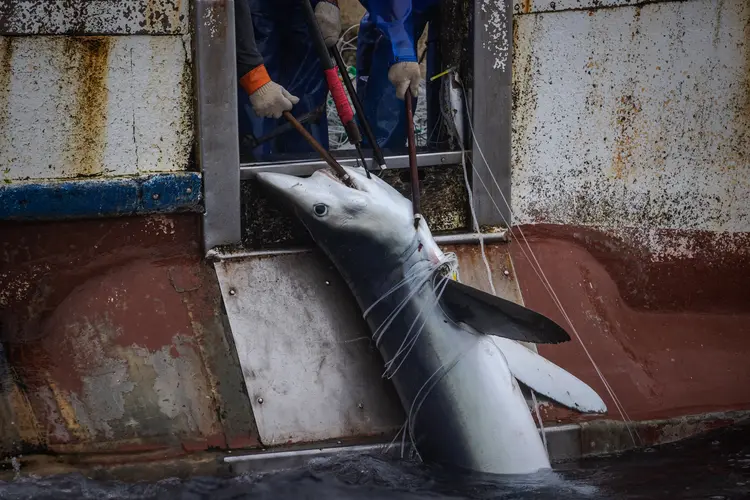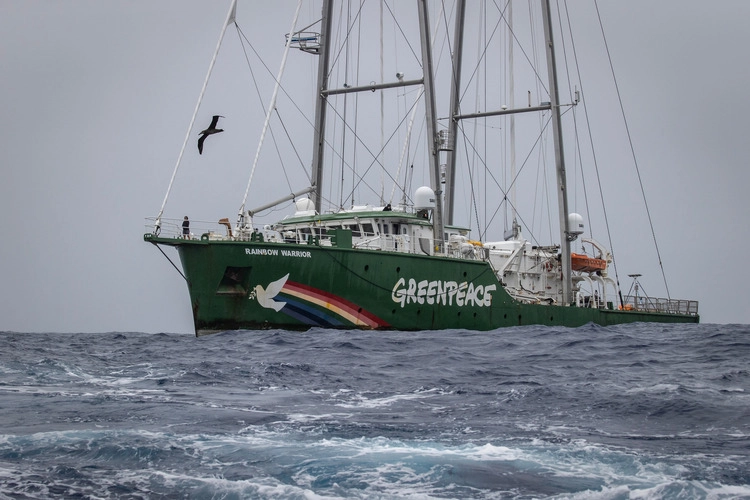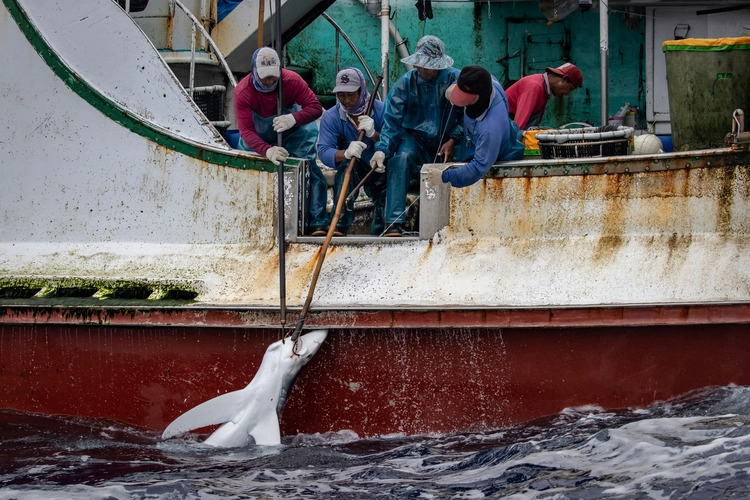
Greenpeace documents longline fishing in North Pacific for first time to find startling reality of sharks being killed
By
A five-week expedition in the North Pacific Ocean – conducted by the Greenpeace ship Rainbow Warrior – has documented the killing of dozens of sharks by longline fishing vessels. Initially monitoring destructive fishing practices and labour conditions on Taiwanese vessels around the Emperor Seamounts – the undersea mountain range extending northwest from Hawaii – this expedition marks the first time that Greenpeace has been able to monitor entire hauls of Pacific longline fishing vessels.
Over the course of 25 hours, the team documented 84 sharks being hauled out of the water – either dead or quickly killed on board – at a rate of three sharks per hour. No apparent consideration was given to the sharks’ species or age. An estimated 4,000 hooks were hauled up empty, demonstrating the devastating impact of industrial fishing on marine ecosystem health.
‘We came to the North Pacific to investigate fishing vessels and their fishing and labour rights practices, but what we found were sharks indiscriminately pulled out of the ocean, often fighting for their lives, amongst seemingly endless empty hooks,’ said Charli Fritzner, who works on Greenpeace’s Beyond Seafood campaign. ‘This pattern was repeated across all five longline hauls observed and is a worrying indication of the increasing emptiness that destructive fishing practices have caused in our oceans, enabled by woefully inadequate high seas regulation.’

Historically, illegal and unregulated fishing has been the biggest threat to the ecosystems of the 800 seamounts, a Greenpeace priority site for ocean protection. Longliners use cables almost 100km in length, with thousands of sharp hooks attached – a method that ultimately leads to the capture of many different species of unwanted bycatch, including endangered sharks.
With permission from captains, Greenpeace investigators also were able to engage with fishers on board of the longliners. Over 45 fishers were given access to satellite internet connection from the Rainbow Warrior so they could contact loved ones – likely for the first time in months. It is common for distant water fishing vessels to be at sea for many months, or sometimes even years, without any chance for workers to contact the world beyond the vessel or to alert authorities to issues on board.

‘Longline fishing is the most common type of fishing worldwide, and it takes a huge toll on our oceans and the beautiful creatures within them,’ said oceans campaigner for Greenpeace UK, Briony Venn. ‘By documenting this wasteful and indiscriminate practice we hope to show governments, including that of the UK, the consequences of failing to ratify the Global Ocean Treaty quickly.’
‘This new and important tool for tackling industrial fishing on our high seas is useless until it is passed into UK law and used to protect unique ecosystems such as the Emperor Seamounts,’ Venn continued.
The Rainbow Warrior will next visit the islands of Hawaii to work alongside Indigenous leaders to highlight their efforts to protect the ocean.




